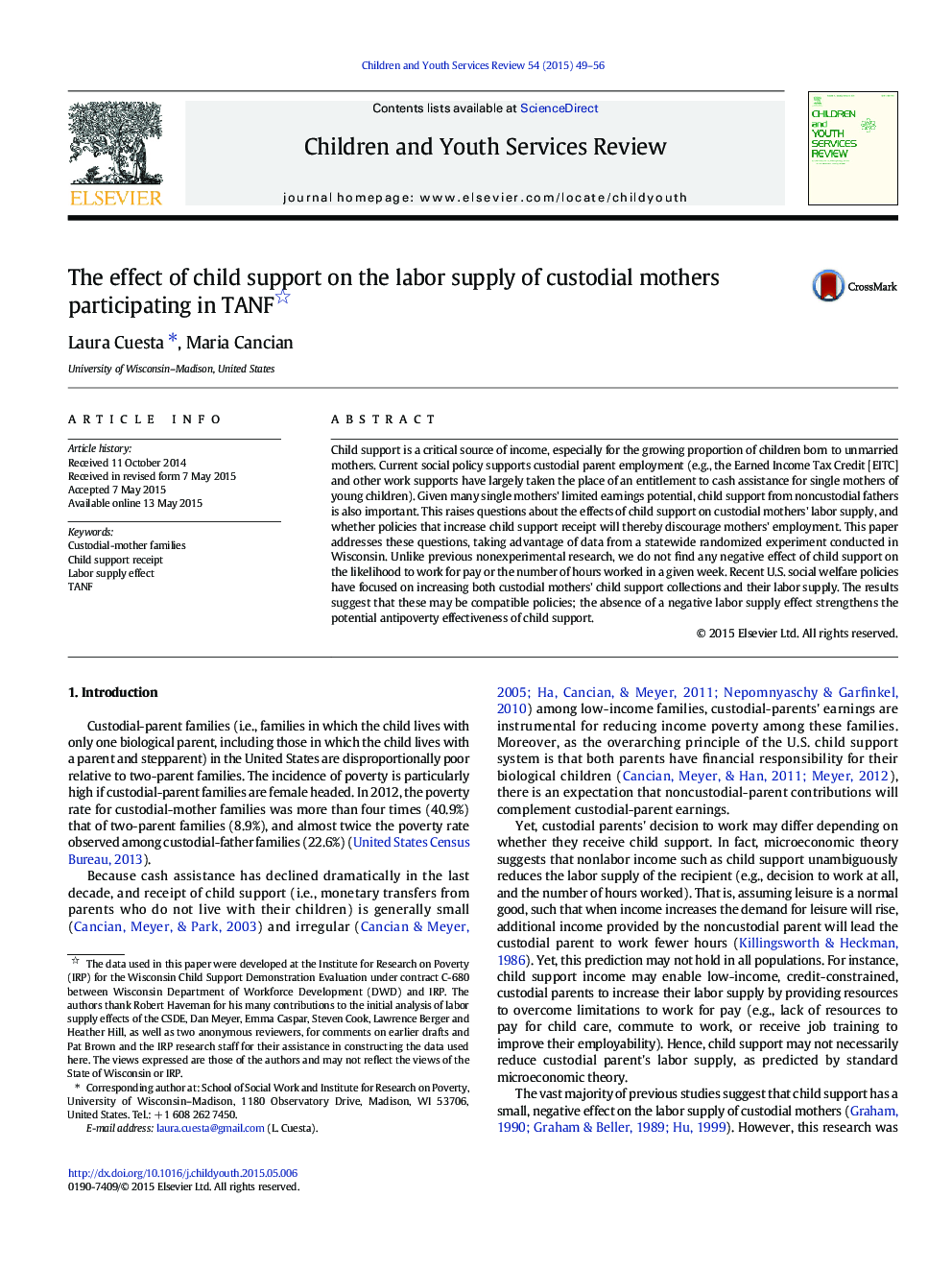| کد مقاله | کد نشریه | سال انتشار | مقاله انگلیسی | نسخه تمام متن |
|---|---|---|---|---|
| 345950 | 617776 | 2015 | 8 صفحه PDF | دانلود رایگان |
• We study child support's effect on the labor supply of mothers receiving TANF.
• Data are from a state-wide randomized experiment conducted in Wisconsin.
• We find no negative effect of child support on employment or hours of work.
• Child support's antipoverty effectiveness greater given no employment effects.
Child support is a critical source of income, especially for the growing proportion of children born to unmarried mothers. Current social policy supports custodial parent employment (e.g., the Earned Income Tax Credit [EITC] and other work supports have largely taken the place of an entitlement to cash assistance for single mothers of young children). Given many single mothers' limited earnings potential, child support from noncustodial fathers is also important. This raises questions about the effects of child support on custodial mothers' labor supply, and whether policies that increase child support receipt will thereby discourage mothers' employment. This paper addresses these questions, taking advantage of data from a statewide randomized experiment conducted in Wisconsin. Unlike previous nonexperimental research, we do not find any negative effect of child support on the likelihood to work for pay or the number of hours worked in a given week. Recent U.S. social welfare policies have focused on increasing both custodial mothers' child support collections and their labor supply. The results suggest that these may be compatible policies; the absence of a negative labor supply effect strengthens the potential antipoverty effectiveness of child support.
Journal: Children and Youth Services Review - Volume 54, July 2015, Pages 49–56
